|
Cranes are a valuable items of equipment on many construction projects. They are used to lift heavy material and equipment. Offloading items from delivery trucks, then placing them in position, sometimes up on towering buildings. Cranes allow for prefabricated and modular sections to be positioned in place - often speeding up construction. Many projects would not be possible without using cranes, or would certainly require lots more effort and time to complete. Unfortunately there are many accidents each year involving cranes. Most of these could be avoided if those using the cranes took better care. Below are a few pertinent and important points to consider when employing cranes on your construction project. #craneaccidents There is other lifting equipment such as forklifts, telehandlers, etc, which are also commonly used to lift and transport material around construction projects. These can also prove deadly when they over topple, or when loads are not properly secured. Crane accidentsCrane accidents result in:
Safety tips for cranesThe incorrect use of cranes and lifting equipment is often the cause of serious accidents. Lifting equipment must always have the outriggers fully deployed and the outriggers must be on firm ground and not near the edges of excavations. The outriggers should be on sturdy boards or beams to distribute the load. Cranes should never lift loads that are heavier, or at a greater reach, than their rated capacity. Always know the weight of heavy loads and ensure these are within the capabilities of the crane. The crane operator should not be overruled or forced to lift a load that they’re uncomfortable of lifting (if in doubt check with an expert). Cranes should never be used in gusty or windy conditions, nor should they be deployed when there’s lightning. Loads should never be lifted over people. Many a time loads have broken free and come crashing down to the ground. Anyone below could be fatally injured if this happens. (Read crane company charged over crane collapse) #constructionsafety Always take extreme care when cranes are working in close proximity to structures or other cranes. (Read: Buildings evacuated as crane smashes into office tower) Cranes should never work near overhead live electrical cables. Coming in contact, or indeed even within a couple of metres, of live high voltage cables could result in a fatal accident, damage to the crane and a power outage. (Read fatal accident when crane touches powerlines) Items being lifted by the crane must always be properly secured. Loads should be balanced so they can’t topple over. Large loads and loads being manoeuvred in tight spaces should have tag lines attached so they can be safely guided into position by workers, who should never stand directly under the load. Workers holding tag lines must take care that swinging loads don’t pull them off buildings or into excavations. (Read: 6 workers injured when crane drops reinforcing bars and Death under load of scaffold) Failure of a sling will result in the load being dropped, where it could cause serious damage to equipment and structures below and fatally injure people. (Read Pressure washer plunges 29 floors) In addition the loss of a heavy load has often resulted in the crane boom swinging back so rapidly that it’s caused the boom to break and even the crane to topple over. Slings must always be properly secured to the crane hook and to the load in such a manner that they can’t accidently come loose. Crane hooks should be checked for cracks and deformation. Hooks have opened while lifting heavy loads, resulting in the load falling to the ground. Hooks should have working safety catches which prevent the lifting slings from accidently falling off. Slings (chains, straps and cables) are of different load ratings. Always ensure that slings are rated for the weight being lifted. Slings must be checked regularly for wear, damage and deformities. Damaged slings must be clearly marked as nonconforming and removed from the project site so they aren’t accidently used. Multi-leg slings must be fixed in such a way that the legs are as close to vertical as possible, and not at an angle greater than 30 degrees from the vertical – the more horizontal the leg the greater the stress created in the sling, which could mean that the stress exceeds what the sling can carry, causing it to break. Slings must always be stored where they won’t be damaged by other equipment and where they won’t become muddy and dirty. Working with cranesCranes are an indispensable part of many construction projects. Cranes are expensive to hire so they should be effectively utilized to minimize time and cost. Regrettably, there are many crane accidents each year, which cause, injury, loss of life, and damage to structures and other equipment. With proper care cranes are valuable tools which can be safely used. #constructionmanagement #constructionprojectmanagement #constructionequipment Other useful articles Become Great at Hiring Equipment for Your Construction Project The Alarming Truth about Using Old Construction Equipment Construction Equipment Productivity 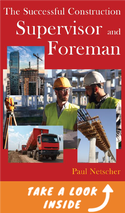 This article is an extract from the book 'The Successful Construction Supervisor and Foreman'. © 2021 This article is not to be reproduced for commercial purposes without written permission from the author. Do you want to learn how to manage construction projects successfullyPaul Netscher has written several easy to read books for owners, contractors, construction managers, construction supervisors and foremen. They cover all aspects of construction management and are filled with tips and insights.
Visit to read more. The books are available in paper and ebook from most online stores including Amazon. construction management construction project management
24 Comments
17/12/2021 09:45:38 am
Selection of a specific sling-type is one of the most important decisions that you need to make at the first stage. Consider the nature of the load, how it needs to be rigged, and the ambient temperatures.
Reply
28/12/2021 12:42:49 pm
Thank you for explaining that outriggers must be fully deployed on firm ground before lifting equipment using cranes to avoid accidents. I will make sure to remember your tips so I can share them with our crane operator. We should look for a crane equipment provider in our area that is also aware of the safety tips for cranes.
Reply
5/1/2022 04:24:39 pm
Thanks for pointing out that cranes should never work near overhead live electrical cables. I would imagine that any facility would need support in lifting heavy objects. I think they should look for a reliable company that can provide quality cranes at an affordable rate.
Reply
29/6/2022 04:01:59 pm
I have been watching a couple of construction-related documentaries recently and I got curious over the equipment that they use. It's amazing how a crane can easily lift and move different types of heavy cargo by the use of slings. I think huge construction projects should consider investing in this type of equipment along with its maintenance.
Reply
14/7/2022 03:25:07 pm
Redwop is a leading manufacturer of specialist chemicals for the construction industry, combining high-quality products and expert technical support.
Reply
21/7/2022 01:23:25 pm
I found it interesting when you said that for many construction works, the cranes are the essential part. My cousin told me last night that he and his business partner were planning to find a height safety chain that they would use for their lifting works, and he asked if I had any idea what would be the best option to consider. I appreciate your informative article, I'll tell him that it will be much better if he consults a height safety products company as they can provide more information about their products.
Reply
Thanks for pointing out that the crane services should be utilized well and minimize the time it is used because they can be expensive. I guess this information would be helpful for my uncle, because he might need one next year. It's for the five-story house that he wanted to have for his family which he mentioned when we had a reunion this month.
Reply
15/11/2022 05:54:12 am
You made an interesting point when you explained that cranes are an indispensable part of construction projects. With that in mind, it seems like it would be important to make sure that you have workers that know how to properly use cranes. It could be a good idea to ask the company you are renting a crane from if they have workers that will be running the machine for you.
Reply
17/11/2022 03:22:42 pm
I totally agree when you said that the slings of the cranes should be secure to ensure that they don't accidentally come loose. I can imagine how dangerous that would be, so the tower crane rental services you are hiring should also have professionals you can trust. It would be a good practice to ask for their licenses before hiring them as well as asking for their years in the industry.
Reply
10/1/2023 01:25:42 am
Thanks so much for warning about the dangers of operating a crane as well as listing some good things. My uncle is working on a big project in his yard and he needs a crane to lift some really heavy things. We'll have to be sure to get the exact measurements of everything so we know which crane to rent so we can ensure safety, when we find a place he can rent a reliable machine for a day or two.
Reply
28/2/2023 02:29:40 pm
I appreciate that you explained that an appropriate level of width and height of the property project could help implement safety while using cranes. A couple of days ago, my best friend mentioned he and his business companions were planning to have a consultation for a crane hire to lower the consumption time for their commercial property project. I'll tell him they may contact reputable crane services that can answer all of his situations. I'm thankful for this enlightening article.
Reply
I found your blog post on cranes, lifting equipment, and slings to be incredibly informative and well-written. It's clear that your team has a deep understanding of the subject matter and a wealth of experience in construction management.
Reply
11/4/2023 08:33:35 am
Your blog post on cranes, lifting equipment, and slings is a shining example of informative and well-crafted content. It's evident that your team has an unparalleled understanding of the subject matter and a wealth of experience in construction management.
Reply
12/4/2023 04:49:11 am
It's helpful to learn about the importance of avoiding crane accidents since they'd lead to death and severe injuries. I have a cousin who's investing in construction projects next month, so since I don't think he'd want to be held liable for a crane accident, I'll email your tips to him right now. Thanks for the information on crane safety tips that help you avoid catastrophes.
Reply
22/4/2023 10:50:41 am
Hey there PN Project Management team!
Reply
9/5/2023 04:20:42 am
It was helpful when you said that the crane operator should be comfortable with lifting each load. My husband was talking to me yesterday afternoon about how he needs to rent a crane for his work sometime this month since they have a construction project coming up. I'll pass this information along to him so he can know how to keep himself safe while using a crane.
Reply
12/5/2023 03:11:31 pm
I appreciate you mentioning that there are additional lifting tools, such as forklifts and telehandlers, that are frequently used to lift and move materials around construction sites. My mom has stated that she needs the tools to assist her in the construction. I'm going to advise her to get Hoist Lifting Solutions.
Reply
8/6/2023 07:44:00 pm
Cranes, lifting equipment, and slings are the backbone of construction projects, enabling the movement of heavy materials and equipment. Their significance in ensuring smooth project execution cannot be overstated. By adhering to proper safety protocols and utilizing reliable lifting solutions, we create a secure work environment for all involved. Let's appreciate the vital role these components play in the success of construction management and the overall safety of the workforce.
Reply
6/7/2023 05:06:24 pm
Excellent article Since cranes and lifting apparatus have always piqued my interest, it was nice to find this instructive article. It is quite amazing how easily cranes can lift big items and shift them precisely. It's fascinating to see how technology has developed in this area, improving the efficiency and safety of building operations.
Reply
15/9/2023 05:51:19 pm
Crane accidents can have devastating consequences, and it's crucial that everyone involved in construction takes the necessary steps to prevent them. Nice tips for raising awareness about this critical aspect of construction site safety!
Reply
16/10/2023 06:21:53 pm
Great article! The information provided is concise and informative. I appreciate how it covers the importance of choosing the right equipment for different lifting tasks. Safety should always be a top priority, and this article emphasizes that point well. Keep up the good work!
Reply
20/10/2023 05:15:31 pm
This post on cranes, lifting equipment, and slings is really informative! I appreciate how it breaks down the different types of equipment and their uses. Safety is crucial in this field, and having a good understanding of the tools involved is essential. Thanks for sharing this valuable information!
Reply
21/10/2023 08:51:22 pm
I can see the effort and time you put into crafting this post. It's evident that you're passionate about what you write. Thank you for sharing your knowledge.
Reply
Leave a Reply. |
Archives
June 2024
Note: We welcome genuine comments, especially comments that add additional information to the subject matter in the article. We however reserve the right to remove inappropriate comments, which includes comments that have nothing to do with the subject, comments that include inappropriate language, and comments that are an advertisement for a product or company, or which include an advertising link. Comments must be in English. We will not enter into discussion on why a particular comment was removed.
CategoriesCopyright 2016 - The attached articles cannot be reproduced for commercial purposes without the consent of the author.
The opinions expressed in the attached articles are those of the writer. It should be noted that projects are varied and different laws and restrictions apply which depend on the location of the contractor and the project. It's important that the reader uses the supplied information taking cognisance of their particular circumstances. The writer assumes no responsibility or liability for any loss of any kind arising from the reader using the information or advice contained herein. "I have what I consider some of the best books on construction management."
Books are available from: Amazon.com Amazon.co.uk takealot.com kalahari.com Amazon.in Amazon.de Amazon.fr Amazon.it Amazon.com.au Powell's Fishpond uread bokus Amazon.ca Amazon.es Other retail stores Available in paperback or on Kindle "28 YEARS OF CONSTRUCTION PROJECT MANAGEMENT EXPERIENCE, DEVELOPING SUCCESSFUL CONSTRUCTION PROJECT MANAGERS AND BUILDING SUCCESSFUL CONSTRUCTION COMPANIES"
|
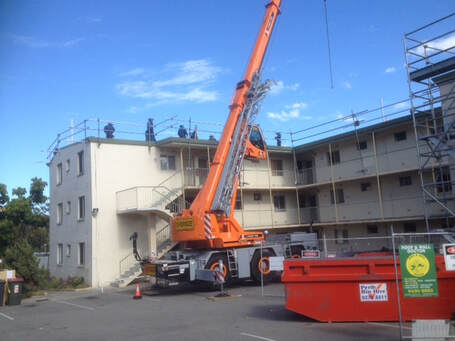
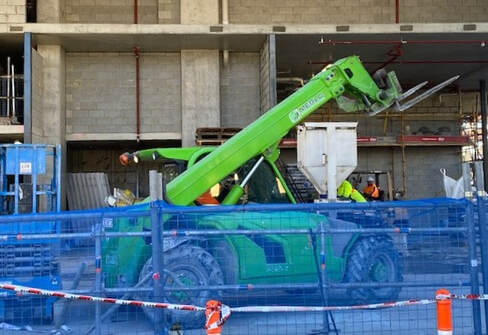

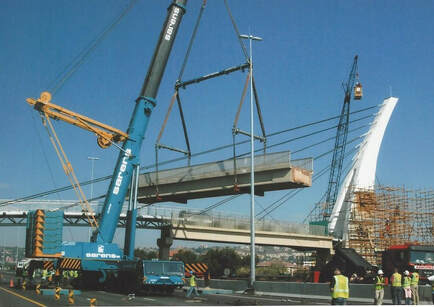
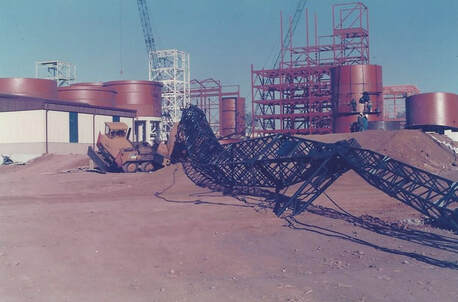





 RSS Feed
RSS Feed




